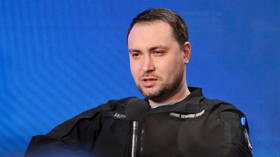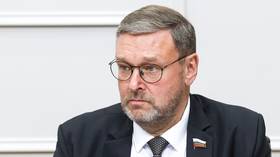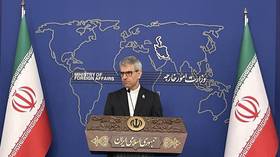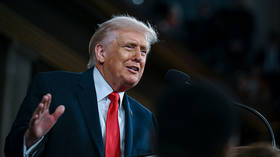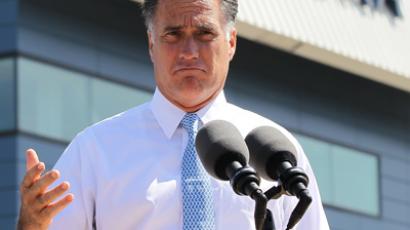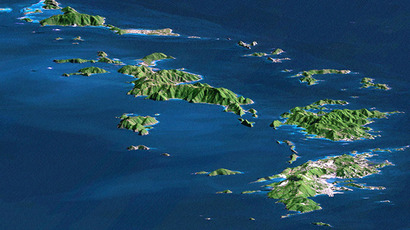Bilderberg agenda: Western elites meet to determine the future of Middle East and Africa
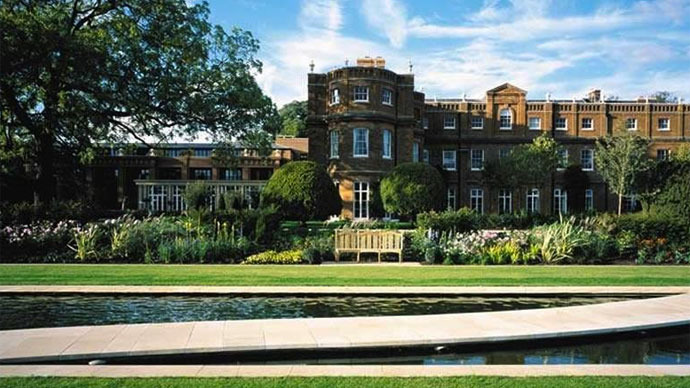
During the world’s most secretive gathering the Bilderberg Group is set to discuss topics including cyber warfare, US foreign policy, “developments in the Middle East” and “Africa’s challenges” despite the glaring absence of regional representatives.
The Bilderberg Group, long criticized for a lack of transparency,
has revealed details of its upcoming meeting. This year 138
politicians, bank bosses, billionaires, chief executives and
European royalty have confirmed their attendance to the
invitation-only event, set to take place in Watford, England. The
list notably includes only 14 women.
The group is comprised largely of individuals from financial and
business backgrounds - there will be nearly three dozen CEOs and
more than two dozen Chairmen of banks and petroleum giants.
Twenty-three financial institutions will be represented at the
five-star Grove Hotel near Watford, Hertfordshire, including
Goldman Sachs.
As the list was released, critics could not help but point
fingers at problems some of the attendees are currently facing in
their respective fields.
Special attention has been placed on Amazon’s founder and CEO
Jeff Bezos and Google’s Eric Schmidt, as the two are currently
facing unprecedented political pressure over their tax avoidance
strategies. Google, for its part, has faced scrutiny amid reports
that it paid just £10 million in corporation tax in Britain
between 2006 and 2011, despite revenues of £11.9 billion.
Chancellor George Osborne and his Labour shadow Ed Balls, who
have been making headlines with their spending and tax offers for
the UK, will also rub shoulders with other participants of the
Bilderberg Conference.
One of the guests is group chairman of HSBC Holdings plc, which
faced a stringent investigation in 2012 for allegedly assisting
in the laundering of money from Mexico, Iran and Syria for
terrorist networks and drugs cartels.
Among guests there are also the 75th and 70th US Treasury
Secretaries, Tim Geithner and Robert Rubin, respectively.

There will be other leading figures such as Christine Lagarde,
head of the IMF, former US secretary of state and Nobel Peace
Prize winner, Henry Kissinger, and David Petraeus, the former
director of the CIA.
The list of prestigious names also includes the former Prime
Ministers of France and Italy, François Fillon and Mario Monti.
There will also be scholars from some of the world’s most
prestigious universities - one from Harvard University, two from
Stanford, and one from both Oxford and Princeton.
Starting June 6 for three days, the delegates will be discussing
of the record a list of topics of universal importance,
determining how the world should proceed.
“The conference has always been
a forum for informal, off-the-record discussions about megatrends
and the major issues facing the world,” a Bilderberg
spokesman said in a press release.
Originally founded in 1954 to foster dialogue between Europe and
North America, this year’s topics include an expansive range of
issues.
With Europe still trying to find solutions for financial problems
and growing unemployment, the elite guests are set to discuss
“jobs, entitlement and
debt”, “politics of the
European Union” and the broadly defined “current affairs”.
Among the 12 “key
topics” for this year’s conference are “developments in the Middle East”
and “Africa’s
challenges.” The inclusion of “Africa’s challenges” is an
interesting choice, as the guest list is notably absent of any
major (or minor) political or academic figures from that vast
continent.
Despite Bilderberg’s traditional exclusion of other areas of the
world, six Turkish attendees are slated to be the only Middle
Eastern voices at the conference. The inclusion of a large
contingent from that country comes at an auspicious time, as
political demonstrations continue throughout Turkey in opposition
to the ruling AKP party.
The overlapping agendas of political and private sector leaders,
as well as current and former political leaders is enough to make
even the most conservative of observers start to wonder what may
bear fruit as a result of the top-level, off-the-record
conference.
As with gatherings of the G-8 and other international
organizations such as the World Trade Organization, which tend to
draw large, disruptive groups of demonstrators, Bilderberg has
prepared a robust security apparatus to keep things running
smoothly.
According to various reports by British media, UK taxpayers will
have to bear the brunt of the ‘exceptional costs’ to police the
meeting, which takes place in that country for the first time
since 1998.




